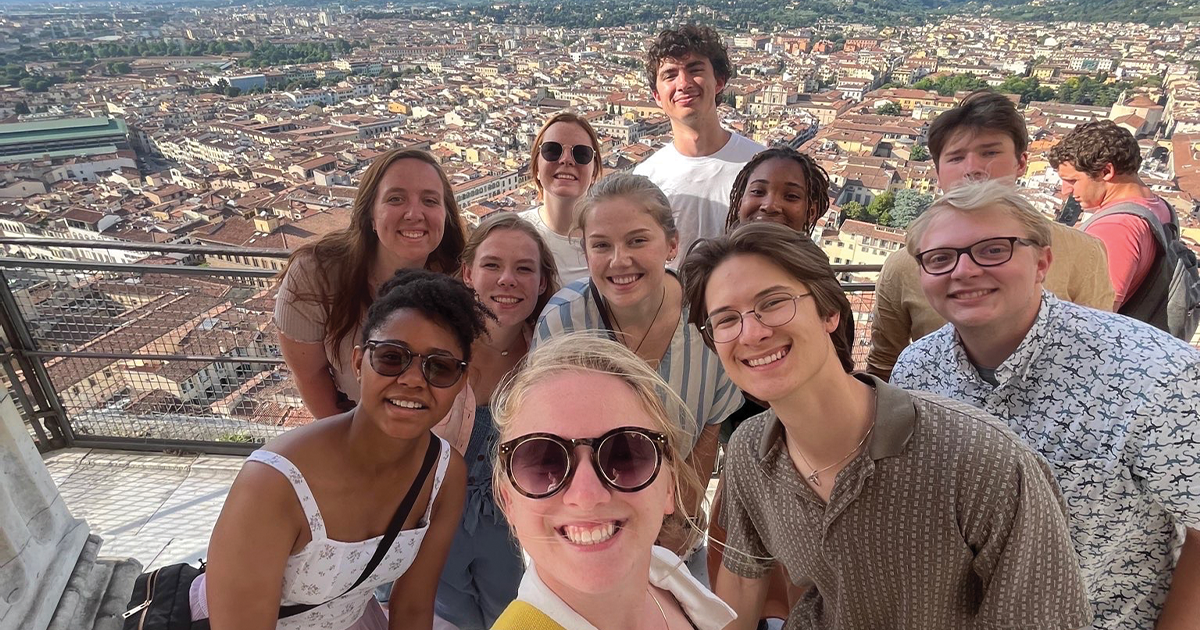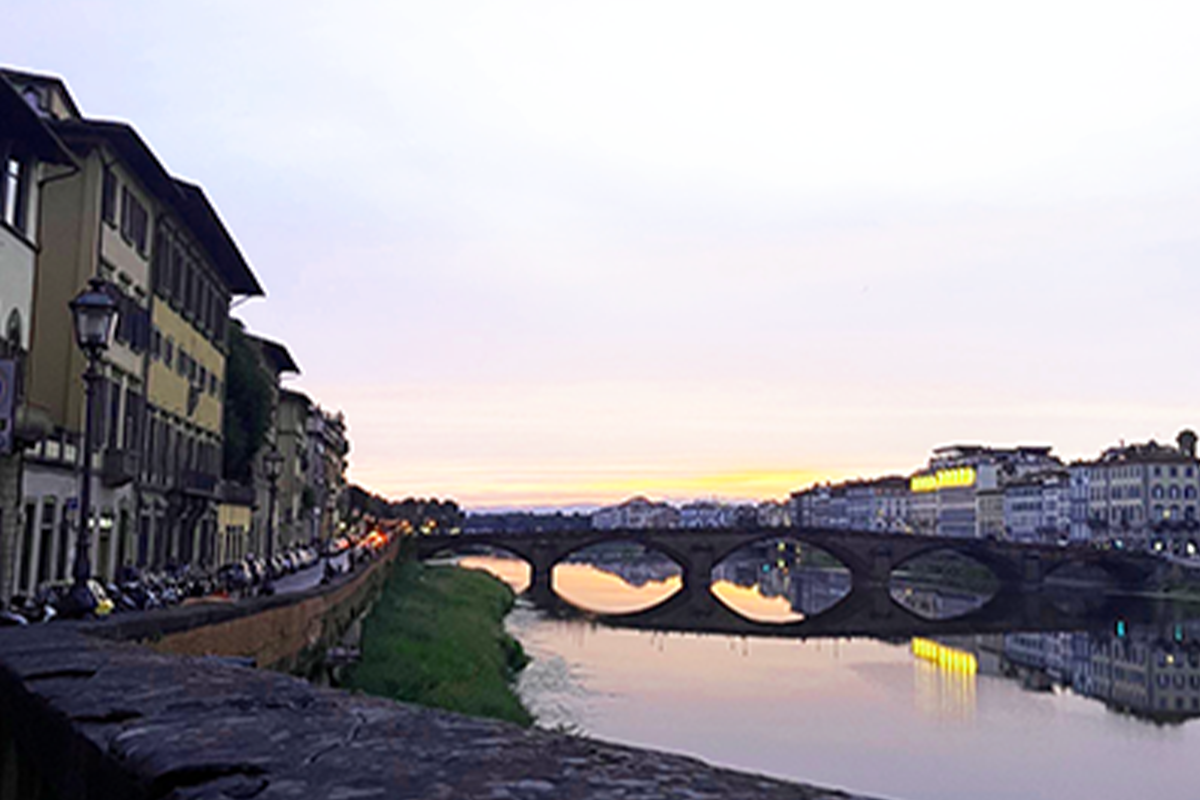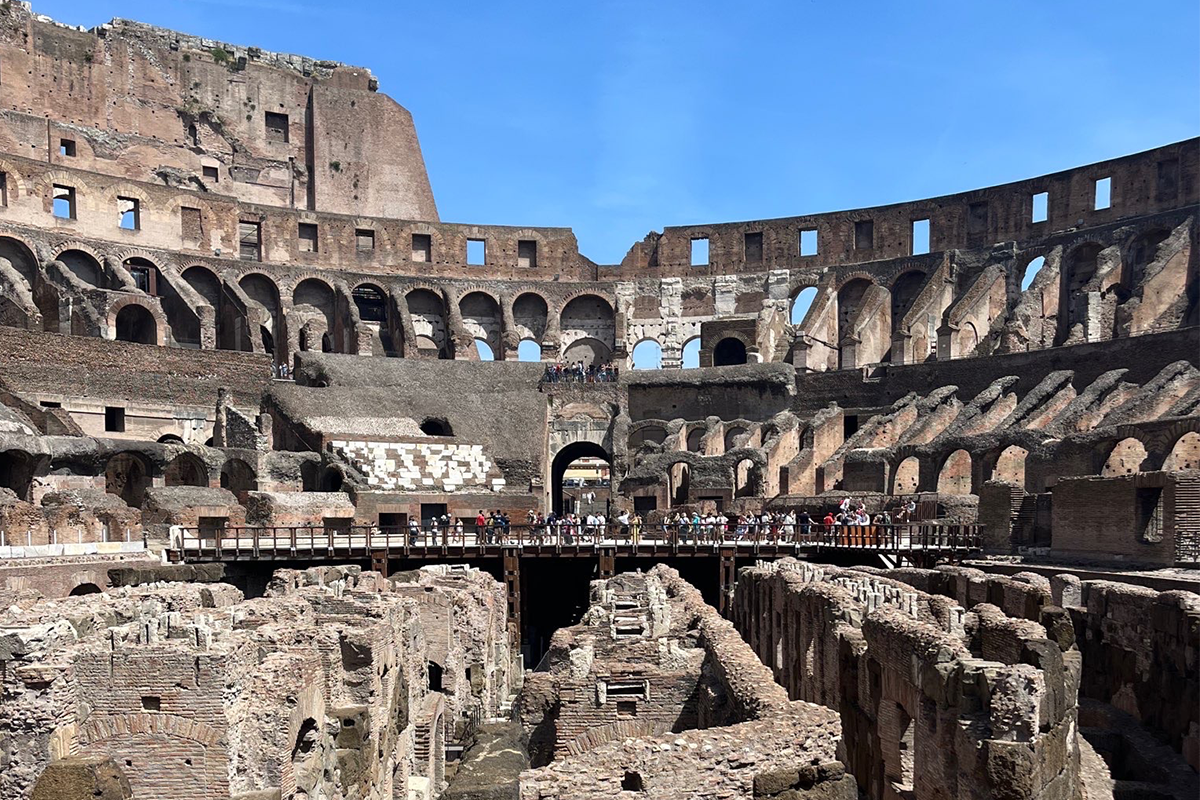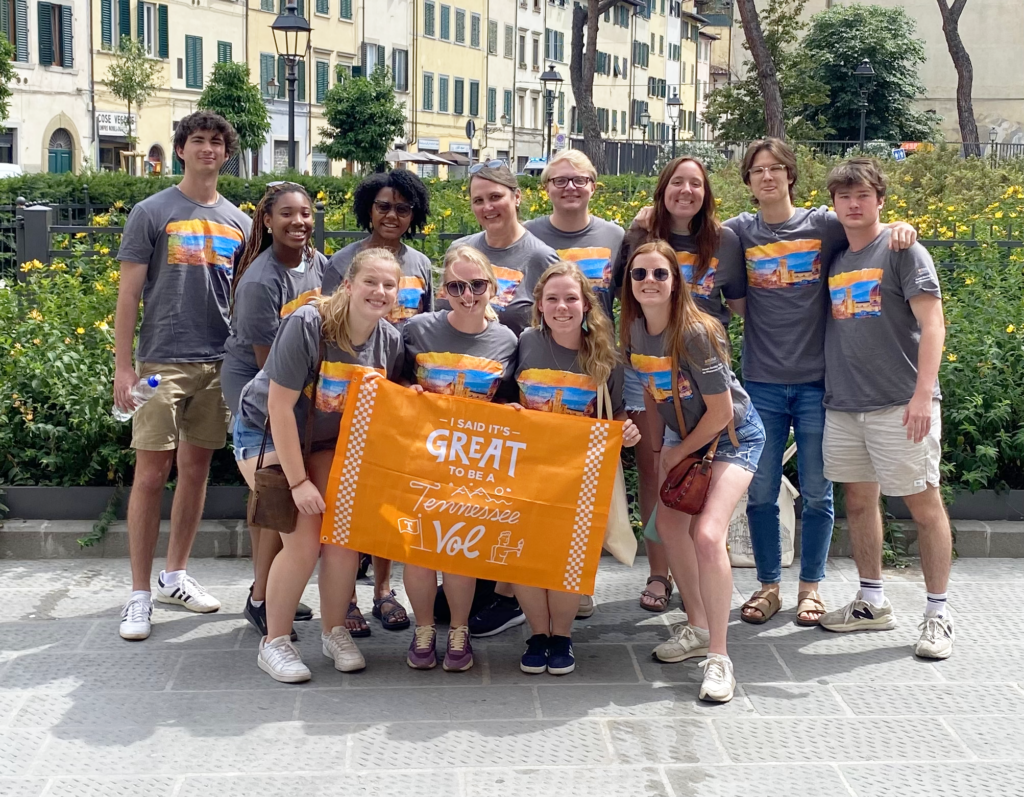By David Goddard.
Course Offers Students Perspective on Past, Culture
There can often be a lot of knowledge gained by studying the past as a precedent for what is yet to come.
At least that’s the theory behind a mini-term class offered by ISE Assistant Professor of Practice and Outreach and Engagement Coordinator Laura Knight, “Applied Human Factors and Art in Italy,” which takes place over three weeks and is centered in Florence.
“Leading a course abroad which connects human factors with art has been a dream since I fell in love with Italy over a decade ago,” said Knight, who is also an alumna of the department. “I have always been interested in art and art history, but when I dove deeper into Florence’s history of supporting so many influential artists, scientists, and engineers, a course connecting the past with developing insight towards improving our future became clear.”
Related: Interested in the course? More information and an application can be found online

Knight pointed out that many significant inventions, discoveries, and artworks which impact our everyday life come from the Florentine influence and the Renaissance, noting that the chance to inspire deeper understanding and ignite a passion for history, art, and creative design in UT engineering students motivated her to persevere over three years to make the course a reality.
How It Started
Knowing that she wanted to build the course was the first step. In the beginning, she put research into seeing what other institutions offered in terms of similar programs, but found out pretty quickly that, aside from one at Auburn University that focused on biomechanics and art, there really wasn’t a program that examined how the representation of the human form and daily life changed throughout history.
Part two was creating the course itself. She wanted it to be able to be mobile and modular, in the sense that she know the class would involve teaching in settings far removed from classrooms, such as museums, in nature, or in architectural settings. UT’s Online Learning and Academic Programs helped through their “Jumpstart Cohort,” which connected her with people with skill sets devoted to setting up online courses.
“The significance of this cannot be overlooked,” Knight said. “I got the expertise and support to design an innovative Canvas course and the content to support student learning and engagement while overseas.”
By the second week, Knight said students had become comfortable interacting with each other and Italian culture.
So much so, that there was one day where they had to sit back and laugh at themselves for being a little too caught up in Italy.
“Florence is a highly visited city for tourism and study abroad, so half-way through our stay, many more people and US students arrived and filled the streets,” Knight recalled. “The immersive experience of our ‘outdoor classroom’ and daily life in Florence allowed us to become so familiar, we found ourselves frustrated with the ‘American’ attitude of all the new tourists, forgetting we are both of those!”
She said the forced immersion in the local culture to get where they were going, getting groceries, and enjoying their daily adventures grew a greater appreciation for the beauty of other cultures and ways of life, as well as a subtle appreciation for what was important in their own lives.
Knight said the group had several business visits during their time in Florence, which were also non-traditional in their size and operating philosophies. As an example. instead of concentrating on output and improvements, their hosts were focused on doing one thing very well, and being successful enough to live a life they chose.
When they asked one knife designer and manufacturer if he planned to bring on more employees to expand, his response illustrated the balance of his reticence to install a new bathroom and manage someone else’s schedule with his current ability to buy as many motorcycles as he wanted, purchase his house, eat out with his friends, support his extended family, and go away for the month of August on holiday.
“After this visit, we all left with a renewed focus on what is important in life, and questions about how we are currently directing our futures,” said Knight.
Why Applied Human Factors and Art in Italy?
In terms of how the trip my impact students, she said that it would likely enhance skills that they already possessed, as opposed to starting any new skillsets.

“I often share my theory that ‘industrial engineers are born, not made,’ meaning that a systems-first perspective is not something everyone can develop, nor would we want that,” she said. “Instead, skills which define successful industrial engineers such as leadership ability, communication skills with varied groups of persons, problem-solving ability, the drive to understand and improve the world around, and a goal-oriented way of critical thinking are innate and difficult to teach. We teach tools to optimize those skills, and practice in many areas of application, but our nature allows us to have a viewpoint that is slightly different than others.”
Knight went on to say that she believes that pairing those skills with international living and travel in her formative years allowed her to develop her skills in adaptability and resourcefulness, as well as empathy and appreciation for diversity.
She said she believes that no one person can successfully interact or live in a strange place, domestic or abroad, without a confidence in your own strengths and a willingness to trust others.
“We found this in our time in Italy, as we faced the challenges every international traveler might experience, missed flights, delayed luggage, pickpocketing, illness, and more,” Knight said. “What we learned is that by focusing on our greater goal and supporting one another as a group, we could overcome any obstacle. Luckily, our group complied with my overarching travel rule, and we came back without anyone ending up in jail, the hospital, or the newspapers.”
Discovering Connections
The trip is jam-packed with excursions every day, and although there are many reflective opportunities and assignments connecting the sights with human factors content, Knight said that the group’s adventures could almost be overwhelming to our sights and senses. She said they found themselves mentally and physically spent at the end of the day for most of the first two weeks from the sheer volume of beauty and new experiences.
The connection between past, current, and future comes through the process of choosing a key artist and artwork, and analyzing one aspect of human life through that lens. According to Knight, forecasting what future changes might bring to that element allows the student to consider effectiveness and opportunities for improvement in daily life.
She added that she hopes that her students, and every other student who has the chance to travel abroad with any program, grows in their appreciation of how beautiful all cultures of the world can be, and that she hopes they gain insight to what they can learn through examining our history as a human population so they can make our collective future better.
“We had so many once-in-a-lifetime experiences, like seeing three of Michelangelo’s Pietas in one location, hiking to where Leonardo da Vinci is said to have tested his flying machines, and climbing to the top of the Florence Duomo,” Knight said. “But my favorite memory was at the Papal audience, when they announced our group from the University of Tennessee at Knoxville over the loudspeaker in St. Peter’s Square, welcoming us to Vatican City.”
She said the opportunity to travel across our world and expose students to new experiences which help them expand their appreciation of their own strengths, the art, food, and culture of other countries, and simply the beauty in every day cannot be understated.
For her part, ISE senior Paulina Urbanowicz, who took part in the trip, thoroughly enjoyed the trip and the unique perspectives it brought.
“I had an amazing time on the trip to Italy and really enjoyed learning about their history and culture,” she said. “From an engineering perspective, experiences like this are very helpful, because different cultures bring different approaches and ideas to solving problems, so it opens you up to consider possibilities you might not have thought of otherwise.”
Knight said watching her students grow and develop over the time they shared also grew her appreciation of them.
“I saw my favorite works of art with new eyes, and I learned ways to lead others in their independence and lust for life,” she said. “We each came back subtly, positively changed, and I cannot wait to go back again.”
Related: A full report on the trip from Paulina Urbanowicz can be read online
